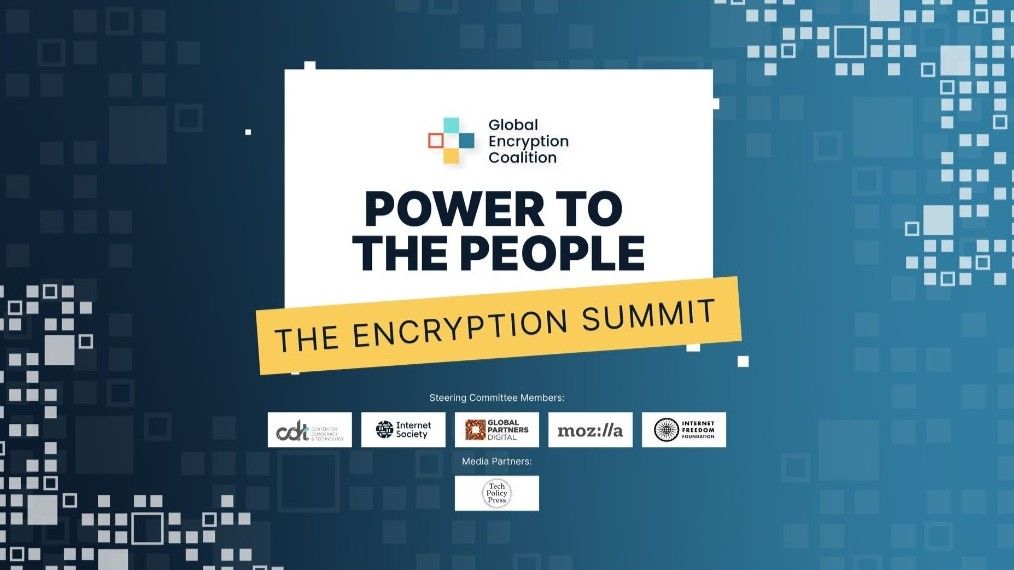Title: Encryption Summit Highlights Importance of Privacy and Threats to Freedom of Expression
Date: October 19, 2023
The Encryption Summit, organized by Global Partners Digital, kicked off with a panel hosted by India-based advocate group Internet Freedom Foundation. The summit emphasizes the right to privacy and the need for accessible encryption for everyone.
During the panel, speakers discussed the significance of encrypted communication for journalists in South Asia and expressed concerns about regulatory efforts that could undermine encryption and threaten freedom of expression and a free press in the region.
The political context of three South Asian countries, namely Pakistan, India, and Sri Lanka, was highlighted. The speakers emphasized the common sentiment that digital regulations in these countries could further limit the digital public space.
The Sri Lanka Online Safety Bill was specifically mentioned as a threat to encryption. According to human rights lawyer Ambika Satkunanathan, the purpose of the bill is to create fear among citizens, human rights advocates, political dissidents, and journalists.
Seema Chisti, editor of Indian news outlet The Wire, stressed the importance of protecting not only encryption but also physical devices regularly confiscated by authorities in order to maintain privacy.
Despite the availability of secure VPN services and encrypted messaging apps like Signal, Farieha Aziz, co-founder of digital rights advocacy group Bolo Bhi, pointed out that these protections often fail in certain circumstances.
Another session at the summit delved into client-side scanning technologies and their issues. The aim was to address the misconception that scanning devices are a reasonable alternative to breaking encryption.
Robin Wilton from the Internet Society explained that client-side scanning involves inspecting written or sent content before or after encryption or decryption. This technique allows governments to access encrypted communications, similar to someone reading over your shoulder.
The main reason governments are pushing for such technologies is to prevent the spread of Child Sexual Abuse Messages (CSAM), similar to 9/11 anti-terrorism legislation. However, Dr. Sabine Witting cautioned against framing privacy as a threat to children’s safety, emphasizing that privacy is a precondition for safety.
Signal CEO Meredith Whittaker highlighted the emergence of AI scanning and biometric companies that claim to safely scan end-to-end encrypted data. She called for unity within the technical expert community to combat dishonest industry practices that endanger human rights.
Another panel, hosted by Mozilla, discussed the use of encryption outside personal messaging services and the policy challenges and opportunities in those areas. Encryption plays a crucial role in protecting computer systems, financial payments, medical records, and browsing behavior.
Alexis Hancock from the Electronic Frontier Foundation criticized the framing of encryption as a tool used for nefarious purposes. She urged caution in how security and protection are portrayed, emphasizing that governments do not always act in the best interest of the people.
Gurshabad Grover, a researcher on network security, censorship, and surveillance, stressed the importance of reevaluating control over personal devices. Regulatory tensions on encryption could restrict developers from sharing encryption algorithms, potentially hindering the development of open-source systems.
The challenges faced by digital services providers in complying with content moderation regulations without compromising encryption and users’ security were discussed in a panel hosted by the Center for Democracy and Technology (CDT).
Iria Puyosa from DFRLab explained how user reporting and metadata analysis can help tackle the sharing of illegal material on encrypted platforms like Meta-owned WhatsApp. However, Dhanaraj Thakur from CDT highlighted the need to empower young people online without treating them as passive participants that require constant supervision.
The summit concluded with a broader discussion on how encrypted communications have empowered marginalized communities and individuals living under surveillance. The importance of online security and the role of researchers and activists in promoting it were emphasized.
Caroline Sinders, founder of Convocation Research and Design Labs (CoRD Labs), drew attention to the false sense of security vulnerable users may have when their communications are not truly private. Diana Gheorghiu, Legal and Policy Officer at Child Rights International Network, highlighted the risks of undermining encryption, particularly for children.
The Encryption Summit served as a platform to advocate for privacy rights, the importance of encryption, and the need to address the challenges posed by regulatory efforts. It emphasized the role of technology in safeguarding freedom of expression and protecting individuals’ private communications.

I have over 10 years of experience in the cryptocurrency industry and I have been on the list of the top authors on LinkedIn for the past 5 years.

